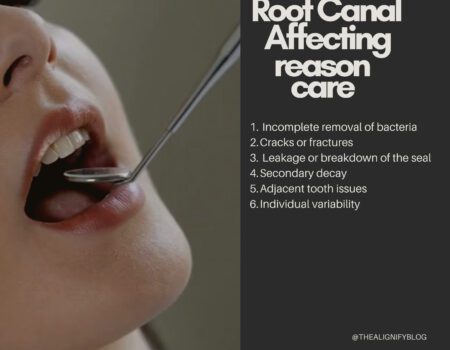
Root canal treatment is a common dental procedure used to treat infected or damaged teeth by removing the infected pulp from inside the tooth, cleaning the area, and sealing it to prevent further infection. While endodontic treatment can be highly successful in saving teeth and relieving pain, it is not always considered a permanent solution due to several factors:
1. Incomplete removal of bacteria: Despite meticulous cleaning and disinfection during the procedure, some may remain in the tooth’s root canals. If any germs are left behind, they can multiply and cause reinfection it.
2. Cracks or fractures: A tooth that has undergone a rootcanal may still be susceptible to cracks or fractures, especially if it is weakened by decay or trauma. Cracks or fractures can provide pathways for germs to re-enter the tooth and cause infection.
3. Leakage or breakdown of the seal: The sealant used to seal the endodontic may degrade over time or become dislodged, allowing bacteria to penetrate the treated tooth.
4. Secondary decay: Although the infected pulp is removed during the rootcanal, the tooth’s outer structure remains vulnerable to decay. If proper oral hygiene practices are not maintained or if the tooth is exposed to acidic or sugary substances, secondary decay can occur around the filling or crown, leading to further complications.
5. Adjacent tooth issues: Problems with neighboring teeth or gum disease can indirectly affect the success of a canal-treated tooth. For example, if an adjacent becomes infected or if gum disease progresses, it can compromise the health of the treated tooth.
6. Individual variability: The success of pulp capping can vary depending on factors such as the patient’s overall oral health, the complexity of the teeth’s structure, and the dentist’s skill in performing the procedure.
While root canals can provide long-term relief and function for many patients, regular dental check-ups and good oral hygiene practices are essential for maintaining the health of treated teeth and preventing complications. In some cases, additional procedures or retreatment may be necessary if problems arise.





No Comment! Be the first one.